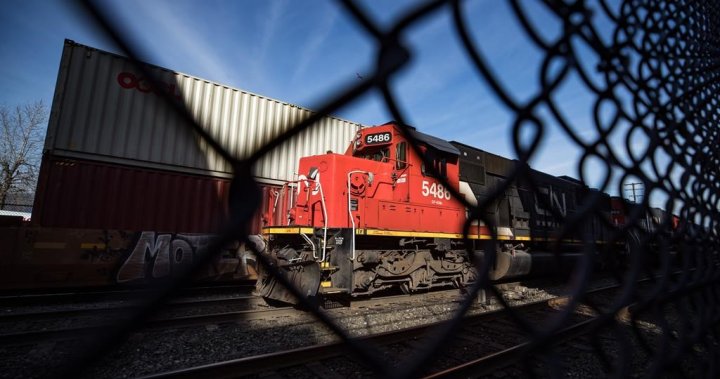Saskatchewan farmers and businesses are facing a potential railway stoppage by CP and CN Railways, which experts estimate could result in losses of up to $1 billion per day. With the strike potentially starting as soon as Thursday, there is a last-minute push to keep the trains running and save the harvest season in the Prairies. The president of the Saskatchewan Mining Association, Pam Schwann, emphasizes that this strike will impact every Canadian and person in Saskatchewan. The president of the Agricultural Producers Association of Saskatchewan, Ian Boxall, adds that the rail stoppage would cause significant problems across the country, given that $33 billion worth of grain is exported from Canada annually.
Boxall also highlights the potential detrimental effects on Canadian producers, Saskatchewan producers, and the overall Canadian economy if the railroads were to go on strike. Any disruption in Canada’s supply chain could also impact global trade relations, as countries reliant on Canadian products may seek alternatives if supply chain issues persist. Schwann points out that essential resources like Saskatchewan’s potash have no alternative means of transportation other than the railway. She warns that a simultaneous stoppage by both CN and CP, something that has never happened before, would have severe consequences, potentially resulting in millions of dollars in losses per day if products like potash cannot reach the market.
The import of potash not reaching the market could lead to countries like Belarus and Russia supplying it instead, consequently taking away Canada’s market share, as demonstrated during last year’s strike at the West Ports. Federal Labour Minister Steve MacKinnon has the authority to enforce binding arbitration between the rail companies and the union to prevent a full work stoppage. However, he has emphasized that both parties must engage in productive negotiations at the bargaining table to avoid a potential rail strike. The uncertainty surrounding the rail stoppage and its potential impact on various industries has led to concerns among stakeholders in Saskatchewan and across Canada.
The looming rail strike has raised fears of disruption to the transportation of essential products like grain and potash, which are crucial for the Canadian economy. The potential losses of up to $1 billion per day highlight the significant economic impact that a rail stoppage would have on various industries and the overall Canadian economy. The urgency to avert this crisis underscores the importance of effective negotiations between the rail companies and the union to prevent any disruptions to the supply chain. The consequences of a rail strike extend beyond Canada, affecting global trade relations and potentially leading to loss of market share to competitors like Belarus and Russia if Canadian products are unable to reach their intended markets.
Stakeholders in Saskatchewan, including farmers, businesses, and industry associations, are collectively advocating for a resolution to the looming rail strike to ensure the smooth transportation of goods essential for the functioning of various industries. The importance of the railway in transporting products like potash underscores the urgency of finding a solution to prevent any interruptions in supply chain operations. The potential impact on global trade relations due to disruptions in the Canadian supply chain highlights the interconnected nature of the international economy. As negotiations continue between the rail companies and the union, the hope is that a resolution can be reached to avert the potentially devastating consequences of a rail strike on the Canadian economy and its trade relationships with other countries.













